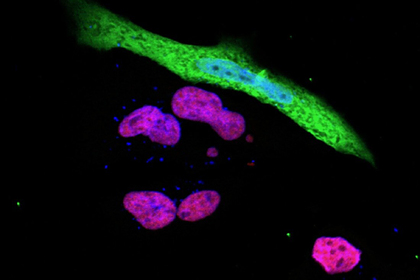
Researchers in Japan and the United States have discovered that SARS-CoV-2 can disable an important molecular pathway that is associated with an immune complex called the MHC-I major immunocompatibility complex. This could explain how the coronavirus escapes the body's defense systems. This is reported in an article published in the journal Nature Communications.
Scientists have demonstrated how the SARS-CoV-2 virus, which causes COVID-19, hacks into gene expression in patients' immune systems. This allows the study of the function of complex cellular signaling pathways that trigger immune responses to fight bacteria and viruses. The MHC-I mechanism plays a central role in the immune response against viruses by allowing the infected cell to attract cytotoxic T cells.
The results showed that a protein from the SARS-CoV-2 virus, called ORF 6, inhibits a host cell protein called NLRC5, which is responsible for MHC-I activation. ORF6 interferes with cellular signaling, which disables NLRC5 expression and directly blocks NLRC5 function. Further research will help find and test drugs that block the activity of the viral protein ORF6.

